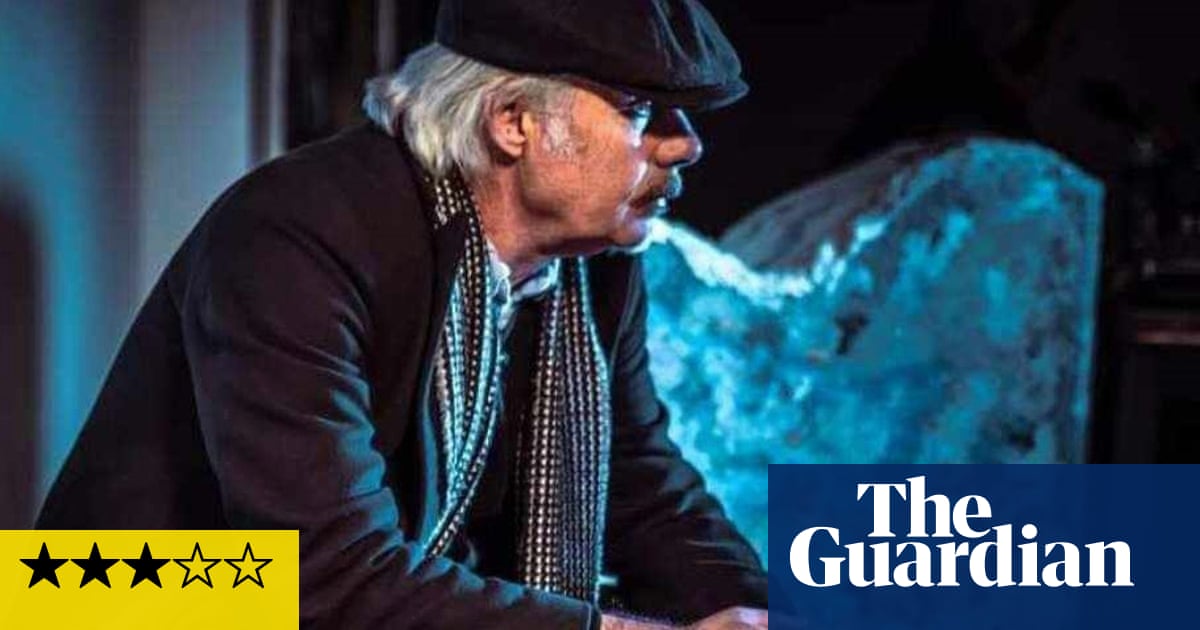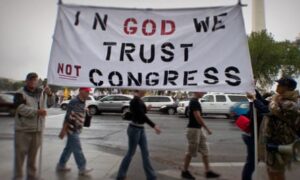
There’s no better time than now for a documentary on popular music’s role in the fight against racism and fascism. And in true punk spirit, this lo-fi indie packs in a lot of history and righteous passion for not much budget – even if, to be brutally honest, its core narrative is a very minor part of that history, centred on a bunch of ageing Clash fans.
The Clash are very much the touchstone here. Motivated by musicians such as Eric Clapton echoing the National Front’s racist and anti-immigrant sentiments, Joe Strummer and co became key players in the Rock Against Racism movement in the late 70s, alongside acts including Steel Pulse, Tom Robinson and Aswad. (The 2020 doc White Riot lays out the story in more detail.) While some punk bands, such as the Sex Pistols, flirted with Nazi imagery, the Clash drew a line in the sand and stood against fascism and racism, as various musicians, writers and commentators from back in the day point out.
That line existed before the Clash (there’s an informative detour to the late-50s Stars Campaign for Interracial Friendship, which included the likes of Cleo Laine, John Dankworth and Lonnie Donegan), and it existed elsewhere after, carried through the 1980s by the likes of Billy Bragg, the Levellers and the Men They Couldn’t Hang – many of whom are interviewees here. There’s also a quick lesson on how Belfast punk, and Terri Hooley’s Good Vibrations record shop and label in particular, cut across the political and sectarian divides of 1970s Northern Ireland.
Today, of course, the fight needs fighting more than ever, in the era of resurgent far-right politics, toxic social media, Brexit and Donald Trump (whose supporters have included John Lydon), not to mention a reluctance on the part of some musicians to get overtly political and take a stand on such issues. For those unfamiliar with the history, this is a useful primer, and for the most part the story is told through a dense but lively collage of interviews, archive clips, stills and lyrics, often all at the same time. There’s a scrapbook-like aesthetic of split screens and graphics that’s pleasing to the eye and packs in a lot of information.
Where the film falls down somewhat is in its latter stages, when these keepers of the Clash flame take action against the way their heroes are being hijacked by, er, starting a social media group for “Clash fans against the right” – and holding a few small concerts featuring relatively obscure bands and speakers, whose most recognisable names are Jeremy Corbyn and John McDonnell. Despite some attempts to bring things up to date with a fleeting mention of grime music, these relatively minor actions, mostly led by a group of white men in their 60s and 70s, are hardly at the cutting edge of today’s activism. There’s a distinct impression of riding on the coattails of larger historical currents, but there’s no doubt their hearts are in the right place, or that their message is still worth putting out there. When it comes to solidarity and resistance, these old punks can still teach today’s youth or thing or two.
Source: theguardian.com





















